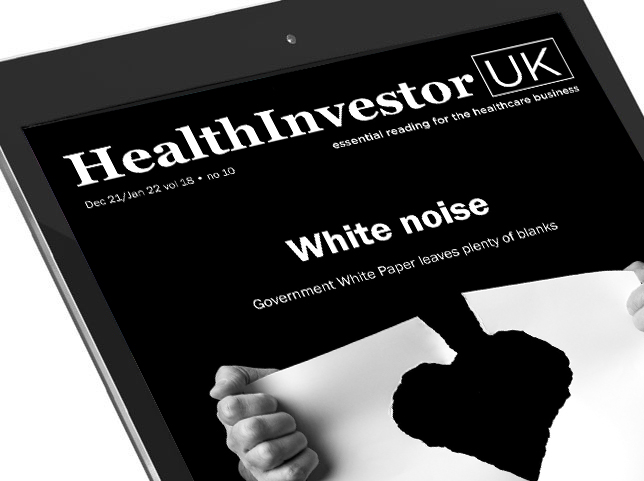No deal? You cannot be serious
The UK health investment community is doubtless following the twists and turns of the Brexit process with a certain horrified fascination and not a little disbelief. But can it possibly be that we will leave the EU without a deal? To answer that question in the positive was once, in pragmatic business circles at least, grounds for having one’s sanity questioned.
But now crashing out of the EU is no longer a pipe dream of the radical libertarian fringe but seemingly a mainstream option gaining popularity with much of the electorate. Rebranded as a ‘clean break Brexit’, the prospect is rapidly gaining respectability.
Three independent healthcare pressure groups last month wrote an open letter to the government warning of the negative impact a no-deal Brexit would have on health and social care provision in the UK.
While much of their attention was focused on the NHS, the independent sector should also be concerned with the outcome of Boris Johnson’s attempts to negotiate a positive outcome to our seemingly inevitable departure from the EU at the end of this month.
Richard Murray, Nigel Edwards and Jennifer Dixon, chief executives of The King’s Fund, Nuffield Trust and The Health Foundation respectively, identify areas where the consequences of a crash out will be felt most keenly in the health and social care sectors.
They say that leaving the EU without an agreement could worsen the already dire workforce shortage. On pages 16-19 we examine the fall in quality across the specialist and mental health care sectors which is inevitably linked to difficulties in finding qualified nurses and care workers with the necessary attributes to work with very challenging patients and residents.
The authors of the open letter quite rightly point out that with 116,000 EU nationals working in healthcare and 104,000 in social care, “even a small trend towards European migrants leaving the United Kingdom due to a fall in the pound or uncertainty around being granted settled status will worsen this situation”.
They go on to look at the supply of medicines and medical devices which all health and social care providers rely on to deliver their services. At the very best, the burden of additional paperwork and seemingly labyrinthine import procedures is a serious threat to all involved, both in the public and private sectors.
It is admirable that private sector providers like Spire Healthcare say they’ve been working with manufacturers and distributors for
18 months to ensure extra drugs are in place after 31 October but disruption to supply cannot entirely be ruled out.
An additional result of a no-deal Brexit may be an abrupt return to the UK of large numbers of elderly expats who’ve up to now been enjoying a sunny retirement on the costas of Spain and elsewhere safe in the knowledge that their healthcare needs will be met under reciprocal EU agreements.
“While we would have a duty to help these individuals, it would add considerably to the already high demand pressures on the NHS and social care,” say Murray, Edwards and Dixon.
At the end of this month we will see if Johnson’s “do or die” Brexit promise comes to fruition and it is to be sincerely hoped that, if it does, his wild optimism of forging a deal with Brussels pays off. If it doesn’t, we face a challenging winter.






